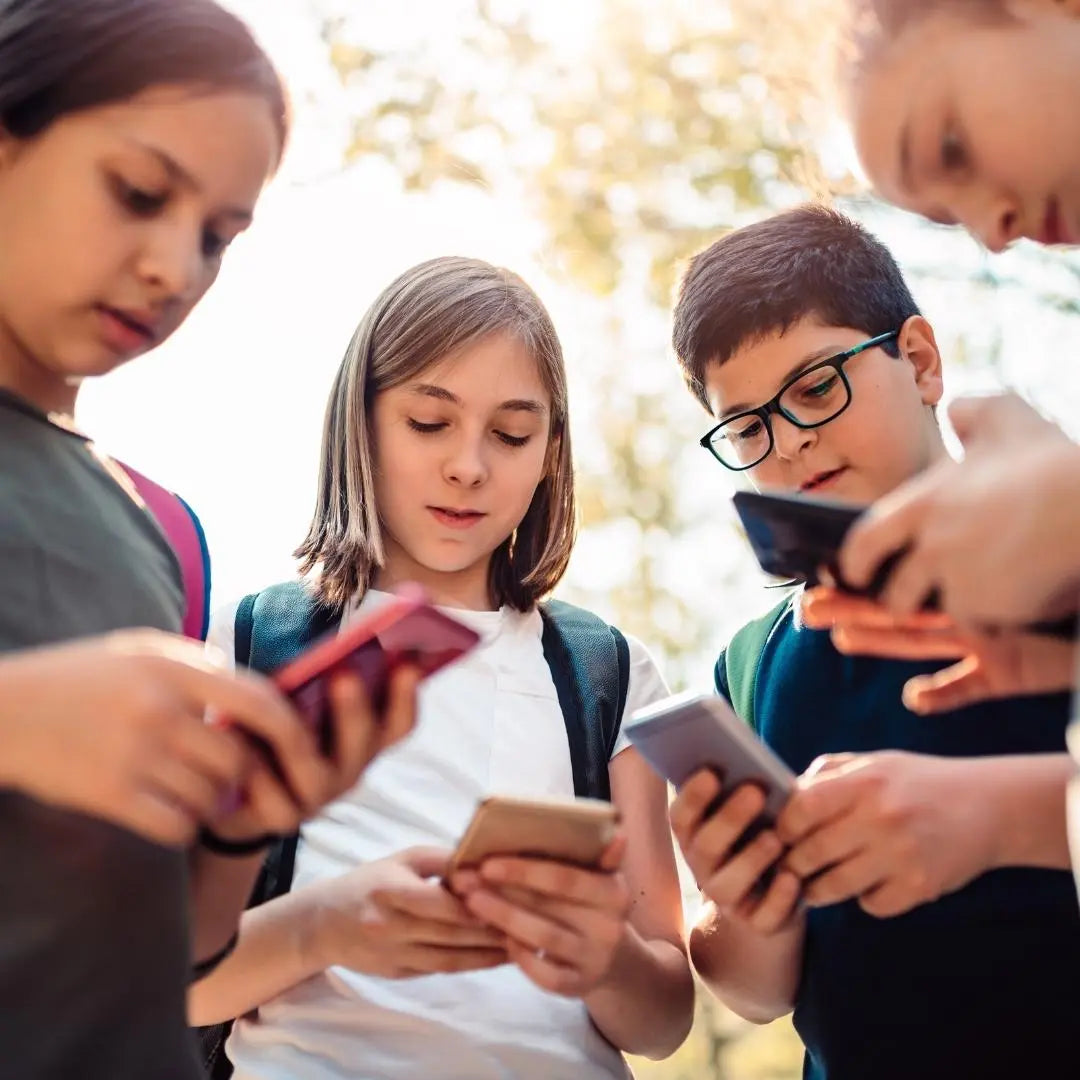Our kids will never know a time without social media–scary, we know. While platforms like Facebook, Instagram, and TikTok are still fairly new, we’re learning every day how the digital world is affecting children’s development. We’ve heard how social media negatively affects adults, but what about our kids in their most formative years?
Negative Psychological Effects
Studies show that kids who spend time on social media are more likely to develop narcissism, anxiety, depression, mania, aggression, and antisocial tendencies. While we grew up comparing ourselves to the kids in our classrooms, our children are comparing themselves to perfectly curated versions of over 4.70 billion social media users. Even if your child only follows people they know IRL, with filters and #humblebragging, it’s hard for our kiddos to know the difference between real and fake.
Negative Physical Effects
During the pandemic, experts noticed an increase in functional tic-like disorders among teenage girls and found an association with viewing a high number of Tourette syndrome (TS) TikTok videos. Kids are seeing higher levels of sleep deprivation, losing the equivalent of one night of sleep per week due to checking their social media notifications, and also higher rates of eating disorders.
Career Day Goal Is Being #Sponsored
In a recent study, when choosing between a teacher, professional athlete, musician, astronaut, or YouTuber, 30% of kids chose YouTuber as their #1 choice. Lured by the idea of free swag, being their own boss, and amassing millions of loving followers, the truth is that 85% of YouTube traffic goes to about 3% of channels and more than 96% of YouTubers make less than the U.S. federal poverty line. While using social media as a creative outlet can be great for kids who are ready, having goals and aspirations outside of social media is best for emotionally fulfilled kids.
Viral Bullying
You used to deal with bullies between school hours and luckily most of that time was spent in class with a teacher present. With cyberbullying, our children can be harassed day or night, most of the time by anonymous sources. With the rise of online harassment, including photos and posts, victims of cyberbullying are relentlessly targeted, leaving them feeling isolated. While we had to deal with bullies who had the courage to physically or verbally assault you in public, our kids have to deal with anonymous enemies on a virtual battlefield, leaving irrefutable harm to our children’s emotional, mental, and physical well-being.
Negatively Affecting Social Skills
Studies show that depression and anxiety have risen 30% since 2005 and researchers are pointing to more social media usage and fewer interpersonal relationships. In another study, experts found that kids who were deprived of screens for five days improved their skills of reading people’s emotions over kids who continued using screens. The long-term positive effects of IRL friendships, including increased self-confidence, conflict resolution skills, and happiness, vastly outweigh virtual friendships. Making it more important than ever that we prioritize our little one’s friendships.
While this may seem doom and gloom, the best part is you have the power to decide! While experts advise waiting to give kids a cell phone with unlimited screen time, apps, and internet access, you have options that allow your kids to stay kids. Whether you choose one of our kid’s smartwatch phones (that everyone from Forbes to The New York Times is talking about) or not, we’re here to give you the information you need to make the best decision for your family.


Share:
Why a Sense of Security Is Important for Growing Children
How To Have Hard Conversations About Tech With Your Kids